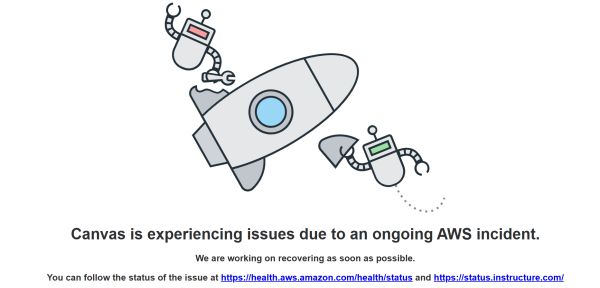Iran vs Israel
Is There A War in the Near Future?
On November 27, 2020, Iran’s top nuclear scientist Mohsen Fakhrizadeh was assassinated by members of Israel’s intelligence service, the Mossad. The assassination was another in a number of combative moves made by Israel and the United States which are damaging Middle East or Iran relations and further imperiling President-elect Joe Biden’s plans to resurrect the 2015 Iranian nuclear deal. After the attack, Iran pledged vengeance, but its president, Hassan Rouhani, faces a challenge, given his own support of the nuclear deal and demands for retaliation from Iran’s right wing. At the center of the chaos and attacks against Iran are US president Donald Trump and Israeli Prime Minister Benjamin Netanyahu, both of whom want to eliminate all possibilities of returning to the 2015 nuclear deal before Biden is inaugurated on January 20, 2021.
Fakhrizadeh was for a long time the number one target of the Mossad. As Iran’s top nuclear scientist, he ran Project Amad, a secret nuclear weapon development program active during the late 1990s and early 2000s. Iran maintains that their nuclear programs exist for peaceful purposes, but at the time of his death Fakhrizadeh was participating in what Israel says is a covert weapons program. Following the assassination, Brigadier General Mohammad Bagheri, Iran’s most senior military chief, stated that Iran “will not rest until we…take revenge on those responsible for the assassination of martyr Fakhrizadeh.” The threat came as the anniversary of the assassination of Iranian General Qasem Soleimani approached. Soleimani was Iran’s top security and intelligence commander, and was killed by a US airstrike ordered by Trump on January 3, 2020. At the time of the assassination, Rouhani and Iranian Supreme Leader Ayatollah Ali Khamenei vowed “harsh retaliation” but so far this has not come to fruition. However, anticipating a potential Iranian show of force on the one-year anniversary of Soleimani’s death, the US has been making moves to display its military force and warn Iran against an attack. On December 30, 2020, the US flew two B-52 bombers over the Persian Gulf after rocket attacks on the American Embassy in Iraq on December 20, 2020, which Iran was behind, according to Trump. Following these US shows of force, there were demands from hard-liner Iranians for retaliation.
The current political situations in both Iran and the US make Iran’s vow of revenge more complicated than it seems. Though he has been quick to condemn American and Israeli interference, Rouhani is reluctant to respond in any major way. The source of Rouhani’s reluctance lies in the fractured nuclear deal, agreed to in 2015 under President Barack Obama’s administration, and Biden’s desire to bring it back. Under the deal, Iran agreed to limit its nuclear capabilities and allow inspections by the International Atomic Energy Agency, and in exchange the US and other powers (Russia, China, France, the United Kingdom, and Germany) agreed to lift sanctions. The deal has long been criticized by Trump, who thinks the terms are too lenient. In 2018, Trump restored the pre-2015 sanctions and added more in an attempt to pressure Iran into new negotiations with the U.S. that would place even more limits on nuclear production and military activity. Iran responded by increasing its uranium stockpile (much of which was exported out of Iran as part of the deal) and has not resumed negotiations, as the Trump administration hoped. The more the Trump administration has violated the agreement, the more Iran has responded with its own violations. Rouhani, however, is not opposed to a return to the nuclear deal. Since being elected in 2013, Rouhani has made it his mission to restart relations with the West and reduce sanctions on Iran. The nuclear deal was an accomplishment for him, just as it was for Obama’s administration. Had Trump been reelected in 2020 and continued on his quest to pressure Iran into a different deal concerning their nuclear plans, Rouhani may have been more compelled to strike back against recent assassinations, giving in to the demands of hardliners in Iran. These radical conservatives advocate for vengeance against America and the west in the face of attacks against Iranian officials. However, with Biden’s re-election, the situation has changed. The President-Elect has long expressed his support of the nuclear deal and his wish to return to it. By seeking revenge against the US or its ally Israel, Rouhani would jeopardize any possibility of improved relations with the west and reducing sanctions. Additionally, as Iran approaches its own presidential election in June 2021, Biden will have to act fast if he wants to negotiate with Rouhani, rather than a new president who may not be as receptive to relations with the west. The Trump and Netanyahu administrations are aware of this timeline and the urgency that comes with it.
Netanyahu was also against the nuclear deal in 2015, and with the approach of Biden’s administration, is looking to soil relations with Iran so that the agreement cannot be restored. Though Israel does want to prevent Iranian development of a nuclear bomb, they would rather assert economic and military pressure in hopes of forcing Iran to agree to a more restrictive agreement than the one established in 2015. This agreement would include keeping some nuclear related sanctions, more limitations on Iran’s supply of centrifuges and stockpiled fissile material (including Uranium), and making aspects of the deal, such as a UN ban on the import of ballistic missile technology, last longer than the terms of the deal state. Israel’s concern about Iran possessing a nuclear arsenal arises from its position in the middle east. If Iran were to develop and be in possession of nuclear weapons, it would threaten the security of Israel and its allies in the region, especially considering the ongoing Israeli-Palestinian conflict with Iran supporting the creation of a Palestinian state). For this reason, Israel opposed the 2015 deal and supported Trump in his maximum pressure campaign against Iran, agreeing to carry out assassinations of Iranian officials on behalf of the US.
The relationship between the US and Israel is crucial for both countries. For Israel, the US provides key military backing and aid that the smaller, still-developing nation needs to assert influence in the middle east and the world. As for the US, a healthy allyship with Israel strengthens its position in the middle east, a key economic region because of its rich oil reserves. Neither nation wants to spoil relations with the other, but their partnership became tense during the Obama administration, especially over issues like Iran and the nuclear deal. Israel recognizes the need to proceed with caution as Biden comes in, but until the President-elect has established himself in the white house, Israel will continue to work well with the Trump administration.
Although the US has leverage over Iran in the form of tariffs, the Islamic nation is using Biden’s desire to negotiate as its own form of leverage over the west. On January 4, 2021, Iran ratcheted up its uranium enrichment to 20%, and seized a South Korean ship near the strait of Hormuz. By raising uranium enrichment, Iran has now returned to pre-2015 levels of enrichment, bringing it closer to having the materials to develop nuclear weapons. As Iran draws closer to weapons development, it hopes to put more pressure on the west to remove sanctions. In 2011, when Iran first began enriching to 20% purity, it almost led to an Israeli strike on nuclear facilities in Iran. By resuming 20% uranium enrichment, Iran is daring Israel, America, and the rest of the west to respond. Netanyahu sees this move as another attempt to develop nuclear weapons, despite a report from the US State Department late last year that “Iran is not currently engaged in key activities associated with the design and development of a nuclear weapon.” As for the South Korean ship, the US stated that Iran seized the ship to “extort the international community into relieving the pressure of sanctions.” The leverage gained through these actions puts the US in a desperate position, and will urge Biden towards a quicker deal that may be less advantageous to the West.
The assassination of Fakhrizadeh was not the first nor the last event to incite tensions among Iran, Israel, and the United States. However, given the timing of the event, it will play a major role in future relations and negotiations between Iran and the west. As Trump leaves office and Biden comes in, past actions against Iran will come into play as the current President-elect attempts to return to the nuclear deal of 2015. Biden will also face challenges in the US relationship with Israel, as he faces opposition to his plans from Netanyahu, who will also have to proceed cautiously in the coming months. Any actions taken in the next two weeks are crucial to this delicate dance between powers, as the world waits with bated breath for a last-ditch effort by the outgoing president to salvage his 2016 campaign promise: kill the 2015 nuclear deal.
I also found this picture when I was researching, I thought it might be helpful to include for some understanding about why uranium matters. It’s from this article: https://apnews.com/article/iran-uranium-enrichment-20-percent-ab0930064c446114506b8d085941cf84








Terrence • Feb 21, 2021 at 10:10 am
“However, with Biden’s re-election”, <—- I think you are four years early for Biden's re-election 🙂